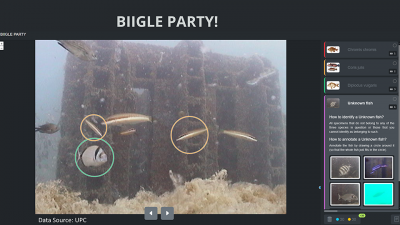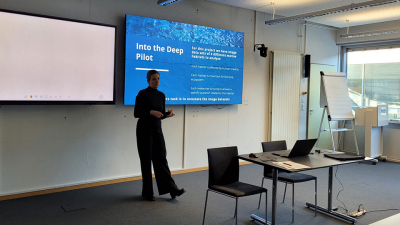- Home
- Discover
- Newsflashes
- BiiGLE PARTY
Launch of the citizen science project "Into the Deep"
According to project manager Dr. Caroline Johansen from Interchange Non-Profit gUG, the aim of the project is to improve awareness and accessibility of the marine environment and learning opportunities for adults. "Both groups involved can benefit from this tool: The "citizen scientists" gain a better understanding of an ecosystem that is difficult to access, and researchers get help in analyzing image data." The results will be incorporated into ongoing research. The results are intended to promote greater cooperation to protect valuable marine ecosystems. The "Into the Deep" pilot project includes data sets from four different marine ecosystems. To encourage more scientists to use this type of citizen science, "Into the Deep" will soon provide a simple step-by-step manual.
The BiiGLE tool was developed by partners at Bielefeld University. Scientists can upload their images online and thus allow "citizen scientists" to process the images based on individual, specific research questions. The latter are introduced in short online courses.
Other partners in the project are Athens Lifelong Learning Institute (Greece), Archipelagos Institute of Marine Conservation (Greece), Institut de Ciències del Mar (Spain), Universitat Politecnica de Catalunya (Spain) and, as an associated partner, the Alfred Wegener Institute for Polar Research.
Interested researchers who would like to create a citizen science project in the BiiGLE tool must provide sample evaluations and thus provide information on which organisms and/or characteristics are of interest in each case. Once the individual projects have been created in Bielefeld, they are accessible to citizens and can be edited.
The primary aim of the event at MARUM was to present the "Into the Deep" project to researchers and to encourage them to use it for their own research questions.
The project is funded by the European Union as part of the Erasmus+ program.
More information can be found here.





